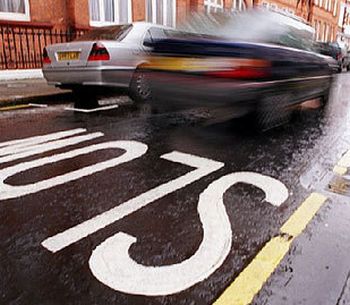Driverless Car Tests Set To Begin In Four English Cities

Bristol, Greenwich, Milton Keynes and Coventry will host driverless cars tests ahead of their arrival on British roads next year
The arrival of driverless cars on British roads has moved significantly closer after it was revealed that four English cities will host testing schemes of the vehicles next year.
The tests are part of the government’s efforts to allow driverless cars on British roads by 2015.
Real World Tests
 The decision was revealed by Innovate UK, the new name for the Technology Strategy Board. It said that Bristol, Greenwich (in South East London) and Milton Keynes and Coventry (working together as one project) will host the formal trials that will last between 18 and 36 months from January 2015.
The decision was revealed by Innovate UK, the new name for the Technology Strategy Board. It said that Bristol, Greenwich (in South East London) and Milton Keynes and Coventry (working together as one project) will host the formal trials that will last between 18 and 36 months from January 2015.
It is understood that the Bristol trial, known as the Venturer consortium, will seek to determine whether driverless cars can reduce congestion and make roads safer. It will also examine the reaction of the public to the cars, and the insurance implications.
The Greenwich test meanwhile is known as the Gateway scheme (Greenwich Automated Transport Environment). This will be led by the Transport Research Laboratory consultancy and involves General Motors, and the AA and RAC motoring associations. It too will test the reaction of the general public, and will test automated passenger shuttle vehicles as well as autonomous valet parking for adapted cars.
Finally, the test in Milton Keynes and Coventry is known as the UK Autodrive programme. It will test driverless cars on the road, as well as self-driving pods for pedestrianised areas. It will also develop the tech needed to built into the British road network to help with vehicle navigation.
The trials are part of the £9m funding announcement made by the Chancellor of the Exchequer George Osborne this week when he delivered the government’s Autumn Financial Statement. The extra £9m funding is on top of the £10m announced in July.
Look Mum, No Hands
The idea of the trials is to thoroughly test driverless cars in a real-world environment, which should help lead to greater levels of understanding of these vehicles. It will also allow the public to accept how the vehicles will fit into everyday life.
“Cars that drive themselves would represent the most significant transformation in road travel since the introduction of the internal combustion engine and at Innovate UK, we want to help the UK to lead the world in making that happen,” said Nick Jones, lead technologist for the low carbon vehicle innovation platform at Innovate UK.
“There are so many new and exciting technologies that can come together to make driverless cars a reality, but it’s vital that trials are carried out safely, that the public have confidence in that technology and we learn everything we can through the trials so that legal, regulation and protection issues don’t get in the way in the future,” he added.
 Transportation Revolution?
Transportation Revolution?
Milton Keynes is already one of the cities leading the driverless car change. In June, Vince Cable opened a £150 million government-sponsored centre in Milton Keynes to develop driverless cars and improve the country’s transport networks across air, land and sea.
And a number of companies are currently developing driverless car prototypes. This includes Volvo in Sweden, but the best known work is being done by tech giant Google.
Google has been experimenting with driverless cars for years in the United States, but the previous prototypes have been based on the Toyota Prius, as well as models from Audi and Lexus.
Yet in May Google signalled it could be prepared to take on the likes of Ford and co, with the news that it will build its own self-driving cars, instead of customising models from other vehicle manufacturers.
That recently announced Google car is different from other efforts, as it is a ‘hands-free’ prototype vehicle with no steering wheel, brake, or accelerator pedals, but it does have a stop and go button.
Motoring organisations have yet to warm to the idea of self-driving cars, but the thinking is that driverless cars would be hugely beneficial for the elderly or infirm, or indeed the disabled community.
What do you know about tech in transport? Take our quiz!
